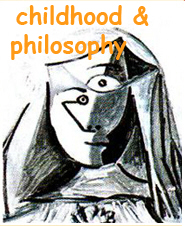the temple school: transcendentalist pedagogy and moral regulation in antebellum america
Keywords:
dialogue, moral education, socratic methodAbstract
At the advent of the common school era in the United States members of the Transcendentalist Club directly challenged Lockean pedagogy and traditional, dogmatic religious instruction in favor of a dialogically-driven moral education experience that harkened back to Plato’s academy. In particular, the Transcendentalists contested the ascension of empiricism in the common school movement at large and within the spiritual and intellectual life of their own brethren, Harvard’s Unitarians. Greek and Latin, languages which had recorded the Western intellectual tradition for thousands of years, were being supplanted by the ascension of the modern sciences from the academy to the university. Many intellectuals were concerned that the liberal and fine arts would no longer shape the outwardly focused minds designing and building the modern industrial state. Wary of any materialistic cognitive scaffolding that could emerge from focusing solely on the empirical world, the Transcendentalists favored Kant and Hegel, upholding rationalism alongside Christian mysticism. A Transcendentalist, in the words of Emerson, “believes in the perpetual openness of the human mind to new influx of light and power; he believes in inspiration, and in ecstasy….the spiritual measure of inspiration is the depth of the thought, and never, who said it.” Schooling should therefore honor perpetual openness and depth of thought through various forms of expression, speech being one of them. In 1834, Bronson Alcott, a member of the Transcendentalist Club, opened the School for Human Culture in Boston, Massachusetts. Alcott sought to provide children with an education that honored personal inspiration and intellectual acumen through a pedagogy which challenged dogmatic mimesis. Alcott argued that “the child is the book. The operations of his mind are the true system…. Let him follow out his impulses, the thoughts…in their own principles and rational order of expression….” Thirty boys and girls from the ages of three to twelve attended Alcott’s school, which was designed to promote the intellectual and spiritual growth of the young. The Socratic method formed the pedagogical core of the curriculum at Alcott’s institution. He used quotes from the Gospels, classical philosophy, and literature as jumping points for dialogue. During spelling lessons specific words were discussed to help elicit conceptual understanding and linguistic fluidity. Fortunately, Alcott’s assistant teacher, Elizabeth Peabody, recorded many of these conversations. The paper presents an analysis of several of the dialogues presented in Peabody’s text. Studying Alcott’s specific questions, student responses to those questions, and the ensuing dialogical moves provides a gateway to understanding Transcendentalist pedagogy. In particular the paper focuses on Alcott’s attempts at moral regulation, a concept defined by Rousmaniere, Dehli & Coninck-Smith as “the disciplining of personal identities and the shaping of conduct and conscience through self-appropriation of morals and beliefs about what is right and wrong, possible and impossible, normal and pathological.” Alcott believed that reasonable deliberation is imperative for the moral regulation of children, because within the dialectical encounter the reflective mind is modeled. Moreover, Alcott argued that the realm of ideas enables one to experience the Good, and thereby avoid of the temptations of the material world.Downloads
Published
2012-06-10
How to Cite
schertz, matthew victor. (2012). the temple school: transcendentalist pedagogy and moral regulation in antebellum america. Childhood & Philosophy, 8(15), 179–194. Retrieved from https://www.e-publicacoes.uerj.br/childhood/article/view/20743
Issue
Section
articles




